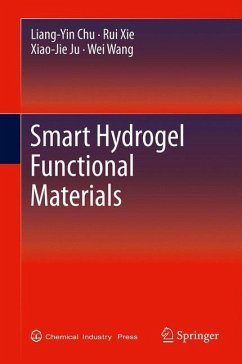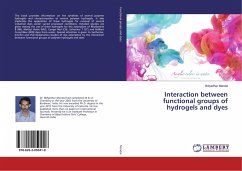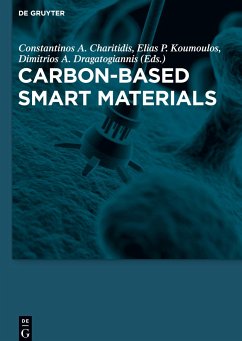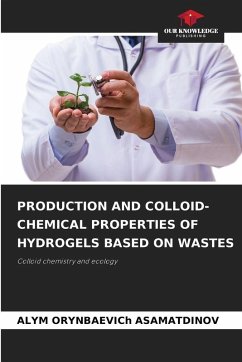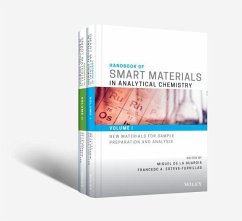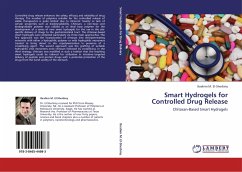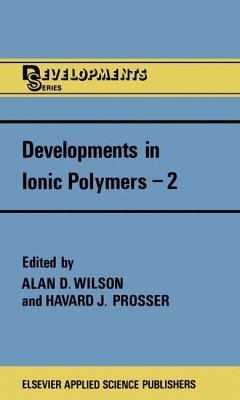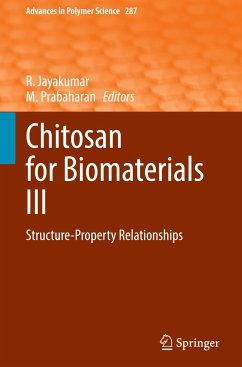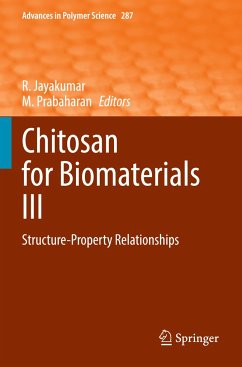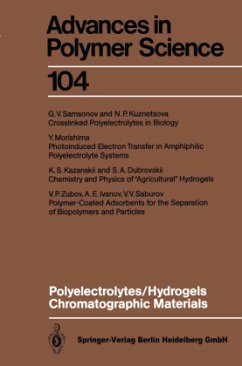
Smart Hydrogel Functional Materials
Versandkostenfrei!
Versandfertig in 6-10 Tagen
113,99 €
inkl. MwSt.
Weitere Ausgaben:

PAYBACK Punkte
57 °P sammeln!
Smart Hydrogel Functional Materials comprehensively and systematically describes our current understanding of smart or intelligent hydrogel functional materials with environmental stimuli-responsive functions. The contents range from hydrogels (including hydrogel-functionalized membranes) to microgels (including hydrogel-functionalized microcapsules) with various response properties, such as thermo-response, pH-response, pH-/thermo-dual-response, glucose-response, ethanol-response, ion-recognition, molecular-recognition, and so on. Most of the contents in this book represent the fresh achievem...
Smart Hydrogel Functional Materials comprehensively and systematically describes our current understanding of smart or intelligent hydrogel functional materials with environmental stimuli-responsive functions. The contents range from hydrogels (including hydrogel-functionalized membranes) to microgels (including hydrogel-functionalized microcapsules) with various response properties, such as thermo-response, pH-response, pH-/thermo-dual-response, glucose-response, ethanol-response, ion-recognition, molecular-recognition, and so on. Most of the contents in this book represent the fresh achievements of the authors' group on smart hydrogel functional materials. While all chapters can be read as stand-alone papers, together they clearly describe the design concepts, fabrication strategies and methods, microstructures and performances of smart hydrogel functional materials. Vivid schematics and illustrations throughout the book enhance the accessibility of the theory and technologies involved.
This is an ideal reference book for a broad general readership including chemists, materials researchers, chemical engineers, pharmaceutical scientists and biomedical researchers, who are interested in designing and fabricating smart hydrogel functional materials for various application purposes.
Dr. Liang-Yin Chu is a professor at the School of Chemical Engineering, Sichuan University, China. He is a Distinguished Young Scholar of the National Natural Science Foundation of China and a Distinguished Professor of the "Chang Jiang Scholars Program" of the Ministry of Education of China.
This is an ideal reference book for a broad general readership including chemists, materials researchers, chemical engineers, pharmaceutical scientists and biomedical researchers, who are interested in designing and fabricating smart hydrogel functional materials for various application purposes.
Dr. Liang-Yin Chu is a professor at the School of Chemical Engineering, Sichuan University, China. He is a Distinguished Young Scholar of the National Natural Science Foundation of China and a Distinguished Professor of the "Chang Jiang Scholars Program" of the Ministry of Education of China.




